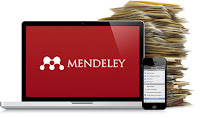Elsevier Launches Health Library to Accelerate Patient Education, Engagement and Outcomes via Direct Access to Trusted Content. Read More
University of Sharjah – Medical Library was established in 2005 with the establishment of the Medical and Health Sciences Campus. The primary mission of the library is to support the academic and research programs through a distinguished collection of electronic and print books, journals, and other multimedia resources.
Tuesday, July 21, 2015
Tuesday, July 14, 2015
Open or shut?
A new breed of academics is emerging in the digital age. They are the researchers and teachers who freely share their knowledge and studies online. They are circumventing traditional approaches and discovering new ways of sharing their work. They are the open scholars. Read More
Labels:
Peer Review,
Publishing,
Scholarly Journals
DuckDuckGo announced they hit a milestone yesterday, surpassing the 10 million daily query mark on June 22, 2015.
DuckDuckGo saw 10,218,617 queries on June 22nd alone. The company gives credit to that surge in users based on them being a privacy focused search engine. Gabriel Weinberg wrote, “we’re proud to be helping so many people take back their privacy.”
DuckDuckGo saw 10,218,617 queries on June 22nd alone. The company gives credit to that surge in users based on them being a privacy focused search engine. Gabriel Weinberg wrote, “we’re proud to be helping so many people take back their privacy.”
So Much for Evidence Based Medicine - Drug Makers Fake the Evidence
Sacramento, CA - You don’t have to look very far to get head-bangingly upset about the current state of medical and scientific research. Pfizer (maybe) hid evidence that Zoloft use by pregnant women caused heart defects in babies. GlaxoSmithKlein paid $3 billion in fines for a) generating a fake journal article saying Paxil was safe for kids b) paying doctors lavish speaker fees and using sham advisory boards to promote Wellbutrin for off-label use and c) failing to report that Avandia, a diabetes drug, could potentially cause heart problems. Merck, for its part, is currently being accused of lying about the efficacy of its mumps vaccine in order to maintain its market monopoly on the drug. Read More
Labels:
EBM,
Evidence Based Medicine
How universities are using data to stop students dropping out
 As universities accept students from increasingly diverse backgrounds, institutions are finding new ways to target support effectively.
As universities accept students from increasingly diverse backgrounds, institutions are finding new ways to target support effectively.“With a shrinking demographic, these institutions are competing for students and if they keep doing what they’ve always done, they’ll get the same results,” says Cailean Hargrave, head of education at education technology consultancy Portal Read More.
Thursday, July 9, 2015
5 Things We Know About College Students in 2014
Everybody wants to know what college students are thinking, especially educators and marketers. What do they like? What are they like?
The surveyors at Student Monitor, a market-research firm, are among those trying to peel back the layers on the minds that so many people invest so much in courting. The firm’s latest research, based on interviews with 1,200 full-time students at four-year institutions, confirms some stereotypes while defying others.
Labels:
College Students,
Education
Saturday, July 4, 2015
TEACH Cards | UW Family Medicine and Community Health
TEACH Cards (Teaching Evidence-based medicine And Clinical topics in the Hospital) is an inpatient educational tool created at the University of Wisconsin-Madison Family Medicine Residency Program in 2013. TEACH Cards allows for efficient 5-10 minute teaching sessions on busy inpatient medicine services and promotes two curricular goals: to enhance core clinical knowledge and to improve patient-centered evidence-based medicine skills. There are 50 different cards, each covering a different clinical topic. Topics were selected from the AAFP Recommended Curricular Guidelines for Family Practice Residents for Care of the Critically Ill Adult.
Labels:
EBM,
Evidence Based Medicine,
Medical Education
Friday, July 3, 2015
In a nutshell…evidence based medicine
What is evidence based medicine (EBM)?
Handoll and Smith [1] define EBM as “the conscientious, explicit, and judicious use of current best evidence in making decisions about the care of individual patients” (p.251).
Read More
Handoll and Smith [1] define EBM as “the conscientious, explicit, and judicious use of current best evidence in making decisions about the care of individual patients” (p.251).
Read More
Labels:
EBM,
Evidence Based Medicine
Subscribe to:
Comments (Atom)

Custom Search





